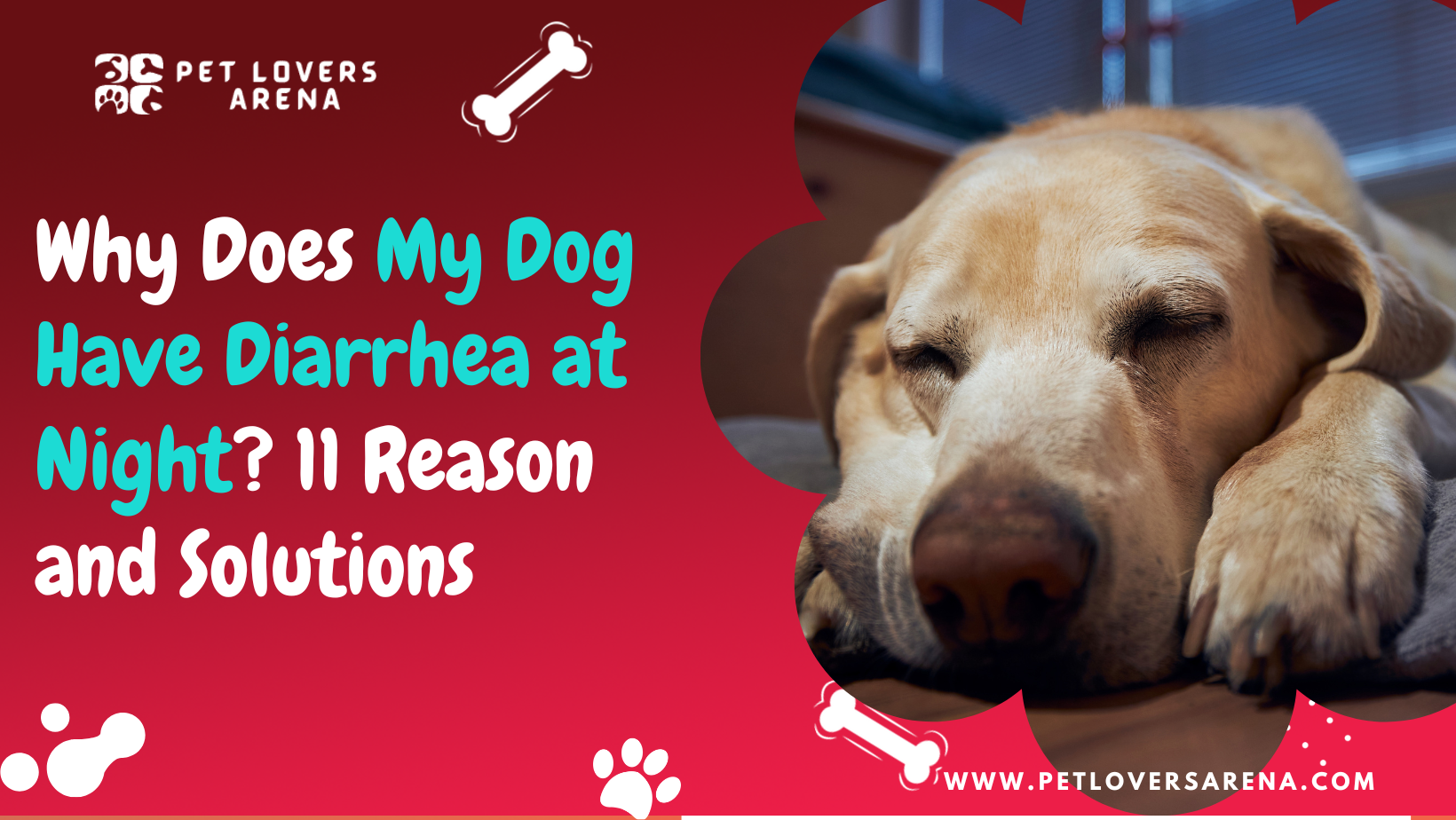Noticing any mishap or problem with dogs immediately puts the dog owners into a tense state. As pet owners, we always want the best for our dogs and will remove any problem that causes trouble to them.
Have you recently noticed the dog having diarrhea, especially at night? Well, there can be many reasons why your dog has diarrhea at night. And to cure the dog, it is very important to go to the actual cause of it.
Likewise, there can be numerous reasons your dog has diarrhea at night, and you need to consider the vet for a particular treatment after identifying the reason. This article will explain why the dog has diarrhea at night and its most probable solution.
Diarrhea in Dogs
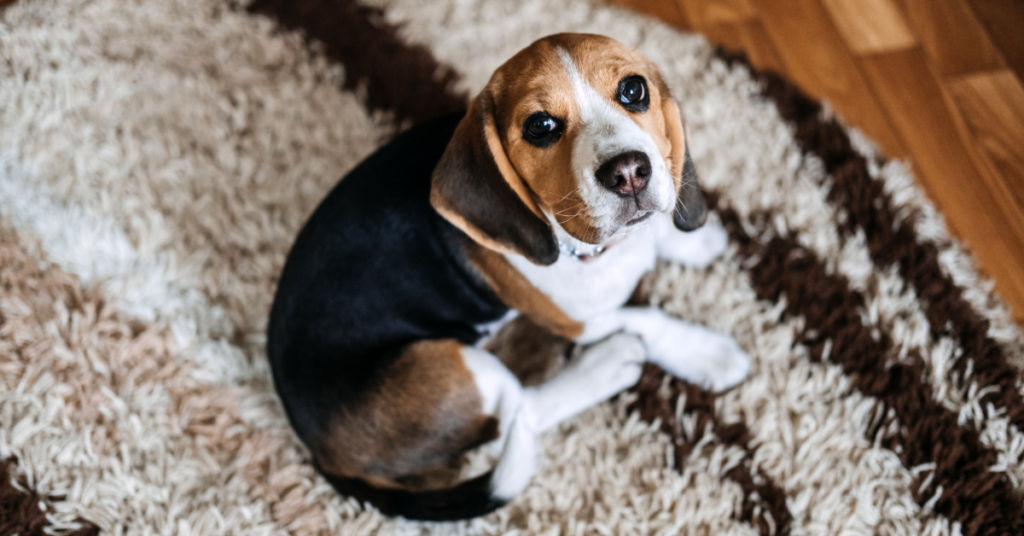
Many dogs visit the vet’s clinic with the problem of having diarrhea. For mild diarrhea, there can be many reasons that cause it. Mild diarrhea is common, and many dogs can develop this due to mild distress in the intestine, which can occur due to eating something that doesn’t sit well in the dog’s stomach.
Mild nighttime diarrhea can also occur in your dog if you have recently changed your dog’s diet from an old one to a new one. However, there can be many other reasons for your dog’s having diarrhea, and these reasons can be very serious too.
If your dog has diarrhea, you will be well aware and familiar with the signs like loose, liquid kibble stools with frequent trips outside the house to the toilet area to remove the bowel.
Diarrhea can occur suddenly in dogs and can last up to a day or a few days to a month. If diarrhea in dogs persists for a long time, dehydration can be the main reason for concern. Long-term diarrhea may indicate that the dog has an underlying health problem. Most of the time, you may notice that the dog has diarrhea only at night and not during the day. Let’s learn more about this condition of nighttime diarrhea in your dog in this article.
Bonus Read: Why Does My Puppy Have Loose Stools At Night?
11 Reason For Dogs’ Having Diarrhea Only at Night
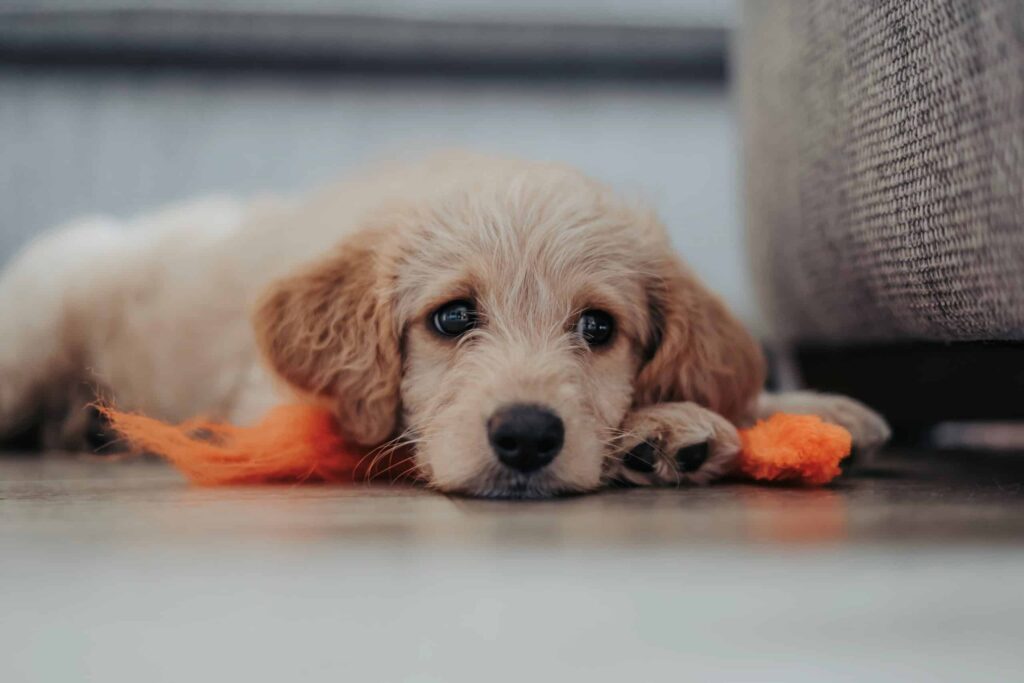
You must be worried to notice what suddenly happens after a long, happy day that causes your dog to have a distressful night with a lot of running poop and a bad stomach condition. While there is no single reason for your dog’s having diarrhea only at night and no problem and a happy day in the morning, you need to look for the culprit in detail.
However, suppose you notice diarrhea in your dog either day or night. In that case, it is a blessing in disguise because, whatever the underlying health condition is, diarrhea informs us that there is undoubtedly some problem with the dog. The problem with your dog can be mild too and go away within a day or two, or it can take time for diarrhea to go away if the pain is severe. In all, your dog’s having diarrhea is a call that it’s time to visit the vet for your dog’s checkup.
If your dog has diarrhea only at night, it is wise to look for other symptoms like vomiting, lethargy, weight loss, etc.
The color, shape, liquid content, etc., and features of your dog’s poop can indicate the problem with your dog and help your dog’s vet identify the underlying cause. For example, red spots may indicate the presence of blood in the stool, while a white rice-like structure can indicate the presence of tapeworms in the dog’s poop.
Below are some of the most common reasons why your dog has diarrhea only at night.
Bonus Read: Why Is My Dog Pooping Clear Liquid? (7 Reasons And Remedies)
1. Switching your dog’s diet
Changing your dog’s diet is not an abrupt or sudden decision you should ever take. When you decide to change your dog’s diet, please don’t make a sudden change, as it is usually advised that you change your dog’s diet and make a slow transition over 2 to 3 weeks.
As a pet parent, you should be well aware of the fact that an abrupt change in your dog’s diet can lead to nighttime diarrhea or vomiting in your dog. Therefore, it is usually advised by the vet that you should slowly make a transition in your dog’s diet. First, you have to introduce the food of the new diet in the meals and then gradually increase the amount until the transition completes.
While you change your dog’s diet, it is important to note the effect the new meal has on your dog until the entire transition process is over.
If you have recently adopted a dog, you must switch your dog’s diet from the low-quality food provided by the shelter to a portion of high-quality food. But remember, you must give your dog enough room to adapt smoothly to the change in the diet.
2. Dietary indiscretion
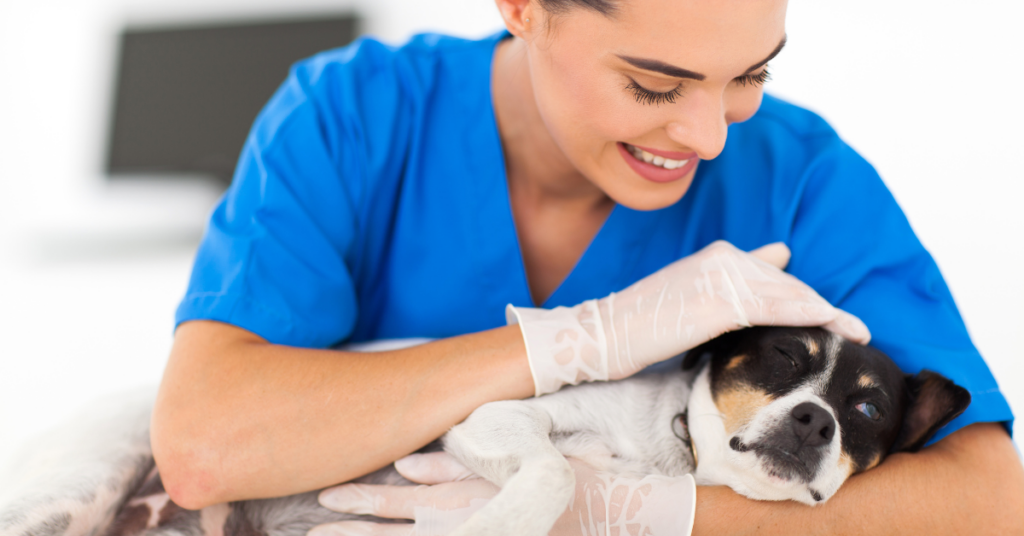
Dietary indiscretion means changing your dog’s eating habits so that the dog becomes less picky about the things they have to put in their mouth.
In such cases, the dog can put things in the mouth that the dog should not, including toxic garage waste, table scraps, rocks, spoiled food, toxic plants, waste products, unhealthy items, etc.
Also, this discreet habit could be due to the feeding habit of your dog, in which case the dog wanders about eating garbage, irritable material, toxic waste, etc.
In many cases, dog owners can also be reckless by giving their dog food items that are not healthy for the dog but toxic. For example, owners may feed unhealthy food, table scraps, low-quality food, leftovers from the kitchen, and other items that may cause the dog to become ill and have nighttime diarrhea.
In either case, the dietary indiscretions cause harm to your dog, causing the dog to have problems, toxications, and commonly harmful conditions that the vets refer to as “garbage toxicosis” or “garbage gut.”
Not having good food and a good diet is a very common reason for nighttime diarrhea, and it can be seen with other symptoms like vomiting, loss of appetite, lethargy, etc.
3. Inflammatory bowel disease
Inflammatory Bowel Disease is a condition in which an abnormal immune response causes the gastrointestinal tract of your dog to get inflamed. As a result of this inflammation, the digestion and absorption of nutrients by the dog’s body are severely affected, causing problems for your dog. If the inflammatory bowel disease is left untreated, it can take a serious toll on your dog’s health, causing trouble for your dog.
Usually, vets cannot figure out the exact reason for an inflammatory bowel disorder. However, still, this disease means there is some serious underlying health problem that your dog is facing. These health problems may be a bacterial infection, parasitic infestation, or overactivity of the dog’s immune system.
Dogs having this problem can have diarrhea or can also suffer from bloody stool. This disease and the symptoms are something for you to worry about and call for you to have a quick visit to the veterinarian.
Bonus Read: How Long Till A Dog Poops After Chicken And Rice? (Answered)
4. Intestinal parasites and microbial infections
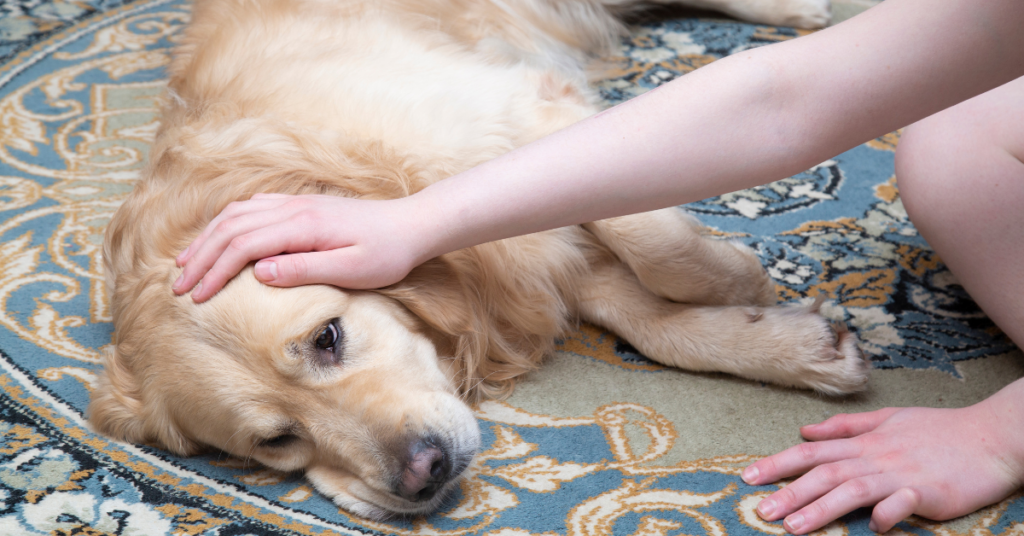
Microbes can be found everywhere, and dogs are extremely susceptible to bacterial infections and parasitic infestations.
Whenever there is a breakage of defense mechanisms in the dog’s body, either due to weekend immunity or increased microbial growth, there are high chances of diseases occurring in your dog.
Eating toxic things like undercooked food, garbage, and contaminated food can make your dog more prone to diseases. Eating such food, the dog becomes more prone to viruses and bacteria like clostridia, salmonella, campylobacter, and parvoviruses.
Similarly, dogs can easily get intestinal parasites from contaminated water and vegetables, infected soil, or stool that contains infective cysts often shed in the dog’s intestine. Roundworms, hookworms, giardia, and coccidia are common intestinal parasites that cause dog diseases, further responsible for nighttime diarrhea.
Any infectious agent like bacteria, parasites, or virus parasites has the potential to cause nighttime bacteria. Usually, small puppies are more prone to this infection of intestinal parasites and microbes as they have weaker and not properly developed immune systems.
Bonus Read: How To Deworm A Dog With Tobacco?
5. Food and drugs
As with humans, dogs can also develop allergies to various food and drugs. The allergic reactions that your dog’s body shows usually depend on the genes. Some dog breeds are more predisposed than others regarding reactivity to allergens.
Allergy is the immune system’s response to substances the body sees as foreign bodies. During the first reaction to the allergens, there is no strong reaction from the body or immune system, and there is a small sensitization of the immune system.
But with time, the dog’s immune system starts giving a strong reaction due to multiple exposures to the allergens. This leads to anaphylaxis, which is a strong reaction from the dog’s immune system.
Gastrointestinal problems in dogs, like diarrhea and vomiting, can frequently result from allergic reactions. The substances causing these reactions in dogs include beef, eggs, corn, dairy products, chicken, etc.
However, food intolerance is different from food allergies. In the case of food intolerance, there is no immune response or reaction from the immune system, and the dog’s body cannot digest the food. But in the case of food allergies, there is a strong response from the dog’s immune system, causing problems for your dog.
To ensure that your dog remains healthy and that there is no problem with your dog’s body, you need to keep your dog away from allergens as much as possible.
6. Extraintestinal disorders
Nighttime issues with diarrhea can also come from those problems or disorders that are not in the intestinal tract of your dog. One such condition is pancreatitis, in which, due to inflammation of the pancreas, the food doesn’t get digested properly in the dog’s body.
Pancreatitis affects the absorption of sugar and digestion of food in the dog’s body. In severe conditions due to excessive fluid loss, there may be dehydration in your dog’s body.
When there is kidney failure or liver dysfunction, the waste products that ought to purge from the dog’s body get accumulated in the bloodstream, causing trouble by damaging most of the body tissues.
The above-mentioned are also some of the potential causes of nighttime diarrhea in your dog. After all, diarrhea is an external reaction to something serious happening inside the dog’s body that you must examine carefully.
7. Stress and phobia
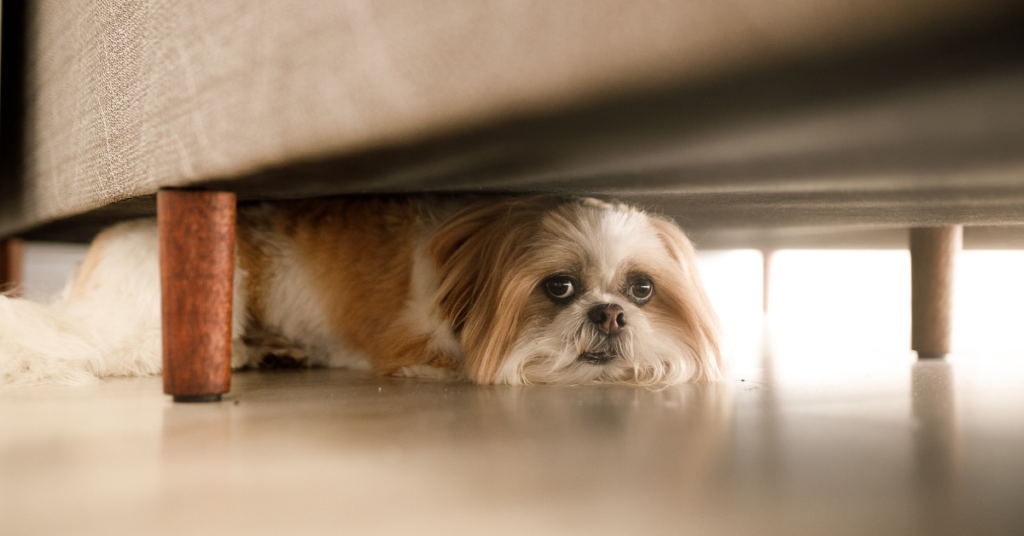
Many pet owners complain about their dogs’ having a problem with stress. Stress can be caused by various factors, including long-distance travel, house relocation, separation, fear of loud noises, etc.
Canines often fear loud noises and tend to be reserved most of the time. Also, many breeds of canines are fearful. They shy away from meeting new people or going to new places where they don’t feel comfortable.
Also, when you have formed a strong bond with your dog, leaving them alone for even a few hours can be very troublesome. If you leave your dog due to separation, the dog will become stressed and either hoot loudly or cry silently.
Stress from many factors like separation, rehoming, and traveling can be tiresome for your dog and can often lead to trouble. In addition, stress and phobias can cause your dog to behave weirdly and affect the hormonal balance of your dog. It can cause various health problems, including nighttime diarrhea, as the dog’s immune system weakens.
8. Side effects of medications
If your dog is on medications or you have recently given medications to your dog, there is a good chance that the dog is experiencing nighttime diarrhea due to these medications.
Certain medications are most commonly responsible for diarrhea in dogs; these medications are NMDA receptor blockers and NSAIDs(non-steroidal anti-inflammatories, i.e., mainly used for pain relief), including medications like Rimadyl, Metacam, and Meloxicam.
In addition, the binding substances in these medications often cause diarrhea in your dog. Therefore, whenever you give medication to your dog, you should go to the vet and discuss the medication and the possible side effects it can have on your dog. Then, if needed, you can change the medications and use safer options.
9. If the dog ate a foreign object
A dog’s curiosity can often lead your dog to some serious situations. For example, an object that the dog finds interesting and eats can get lodged in your dog’s stomach, causing unnecessary trouble as this object can get lodged in your dog’s lower stomach or intestine.
Diarrhea commonly occurs when some foreign object gets lodged in your dog’s stomach. Other signs for your dog to show after eating foreign objects can be constipation, lethargy, pain, lack of appetite, etc.
While it may be serious for you as you cannot detect the exact reason, your dog’s vet can figure it out easily by a close examination.
10. The dog ate A toxic substance
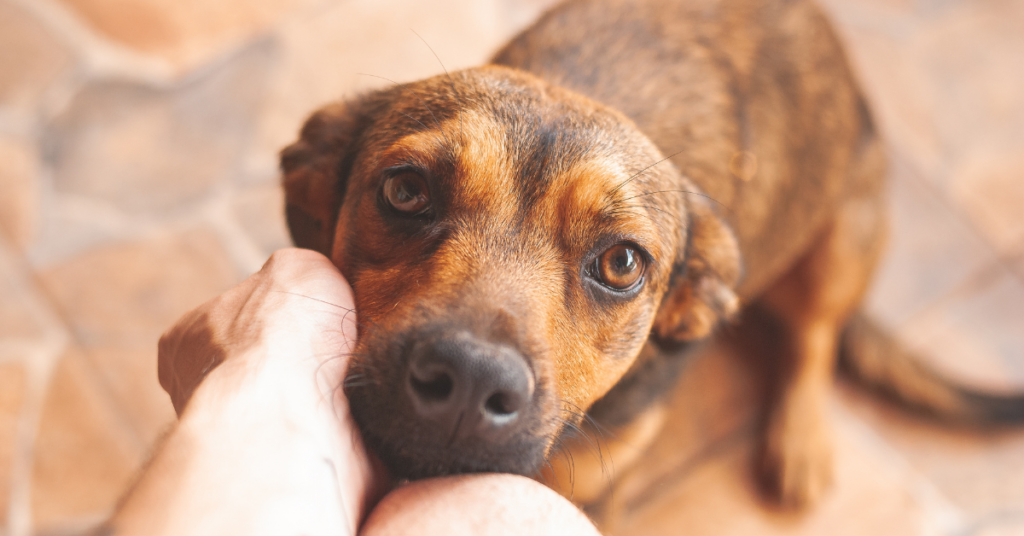
One of the first signs your dog shows after he eats some toxic substance is frequent diarrhea.
The toxic substances that cause diarrhea in your dog include daffodils, ivy, bluebells, mistletoe, holly, and honeysuckle. In addition, wild mushrooms, sunscreen lotion, human medications and vitamins like vitamin D, ice packs, silica gel sachets found in moisture-sensitive goods, chalk, and charcoal are other substances that can trouble your dog and cause them to have diarrhea at night.
11. If the dog ate spoiled food
Sometimes the vet may refer to your dog’s condition as “garbage gut.” It means that your dog ate some spoiled food or garbage that caused your dog to be ill and have diarrhea due to the same.
While in most cases, the condition of the garbage gut can be mild, it still depends upon what your dog consumes to get the condition of the garbage gut. Your dog’s pancreas can be in a very damaging condition for your dog and can cause your dog pancreatitis, which is a more serious condition.
How to Stop Nighttime Diarrhea in Your Dog?
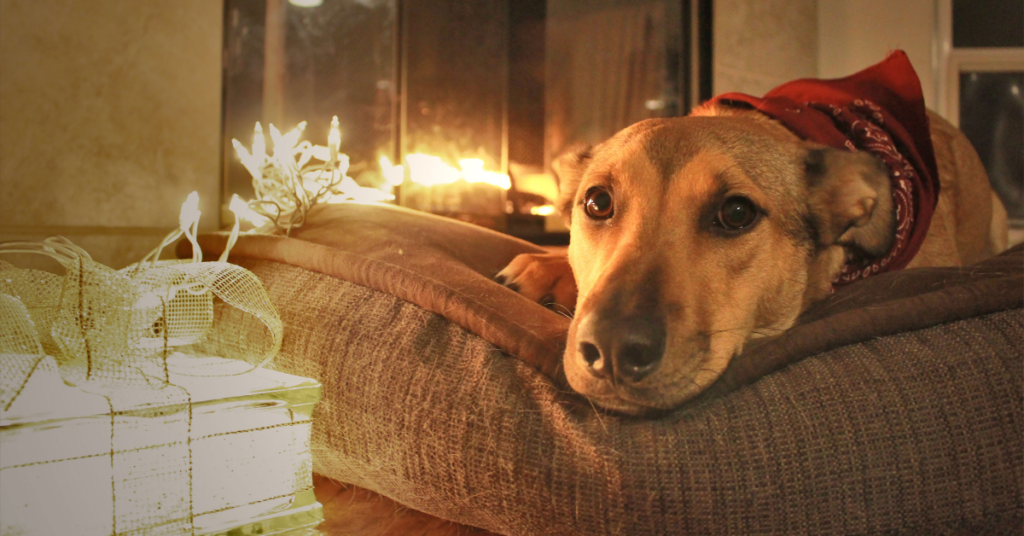
Nighttime diarrhea is a condition that can leave you thinking and in trouble regarding what you should do for your dog to resolve this problem. We come here with some solutions to help your dog recover quickly from this problem. Have a look at the most effective solutions.
1. Stop giving your dog food
You should stop feeding your dog for at least 12 to 24 hours and keep him fasting until that time. The length you should keep your dog fasting depends on their age and size. Dogs in their senior years usually go longer without food than younger dogs.
The reason for fasting your dog is so that your dog’s gastrointestinal tract gets enough time to rest and recuperate. Also, when you put your dog on fasting, ensure that you give your dog enough water so that the dog isn’t dehydrated.
2. Switch the normal diet of your dog to a bland diet
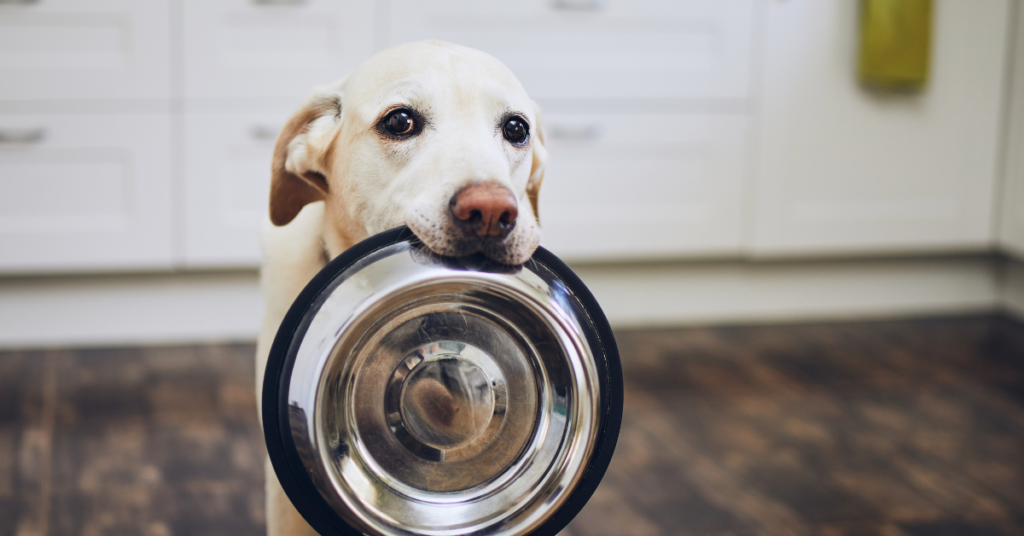
Many veterinarians will recommend that the dog should eat a bland diet of chicken and rice instead of their regular diet as a treatment. This diet will relieve the problem of your dog’s gastrointestinal tract and can cure diarrhea.
A bland diet often refers to a diet with low fiber, starchy foods, and a protein source, chicken and rice. Mostly, many people replace these food items with rice water, shredded turkey, or cottage cheese.
The quality of the bland diet that you give to your dog should be equal to that of their normal diet.
3. Slowly reintroduce the normal food that your dog eats
After one day of giving a bland diet to your dog, you should switch the diet of your dog to a normal one. The diet you give your dog after a bland day should have a mixture of a bland and a normal diet.
Introducing the normal diet or giving heavy food to your dog immediately after it recovers can cause trouble for your dog’s digestive system. Instead, slowly increase the normal diet amount for your dog till the transition is complete, and this will help your dog to recover well.
4. Pepto-Bismol/Kaopectate
Pepto-Bismol is the most famous medication that is very well known for the treatment of your dog’s diarrhea and gastrointestinal problems.
A recent introduction of Kaopectate medication in this list is usually used to treat vomiting and diarrhea in dogs. Before giving any medication to the dog, ensure that you consult the veterinarian for this.
5. Probiotics

If your dog has diarrhea mainly at night, then there can be disruption of the normal microbiome of his gut, and the absorption and digestion will thus be affected.
The dog’s irritant bowel movements or gastrointestinal problems are usually cured with probiotics. Probiotics are rich in healthy bacteria found in normal gut microbiomes like Lactobacillus and Bifidobacterium.
Yogurt and kefir are commercially available supplements that contain probiotics and can be highly useful. Probiotics not only nourish the community of bacteria in the gut but also help boost your dog’s immune system.
6. Peppermint tea
Another good remedy to help your dog recover from diarrhea is giving the dog a calibrated amount of peppermint tea.
This peppermint tea is beneficial for your dog’s diarrhea, vomiting, flatulence, cramps, and other gastrointestinal problems. The recommendation of peppermint tea is 25 mg of dried herbs per pound of body weight twice a day for your dog for its well-being.
When Should you Consult The Veterinarian if Your Dog Has Nighttime Diarrhea?
In many cases, diarrhea subsides naturally after a day or two, but in severe cases, it doesn’t. In such cases, you might need help from the veterinarian. Here are the situations when you can consider going to the vet.
- When home remedies fail, and after several home remedies, the dog’s diarrhea still doesn’t subside.
- Other associated symptoms and diarrhea include fatigue, lethargy, vomiting, etc.
- If you notice your dog having red blood specks, black or green colored stool, etc., it suggests there could be an underlying cause.
- Diarrhea usually doesn’t extend for more than three or four days, but if the condition persists for more than these days, it is advisable that you should go to the vet.
- Severe diarrhea can cause dehydration in your dog, which is a medical emergency. You should take your dog to the vet in such a situation and give your dog appropriate treatment for this.
What If The Dog Has Diarrhea Every 2 Hours at Night?
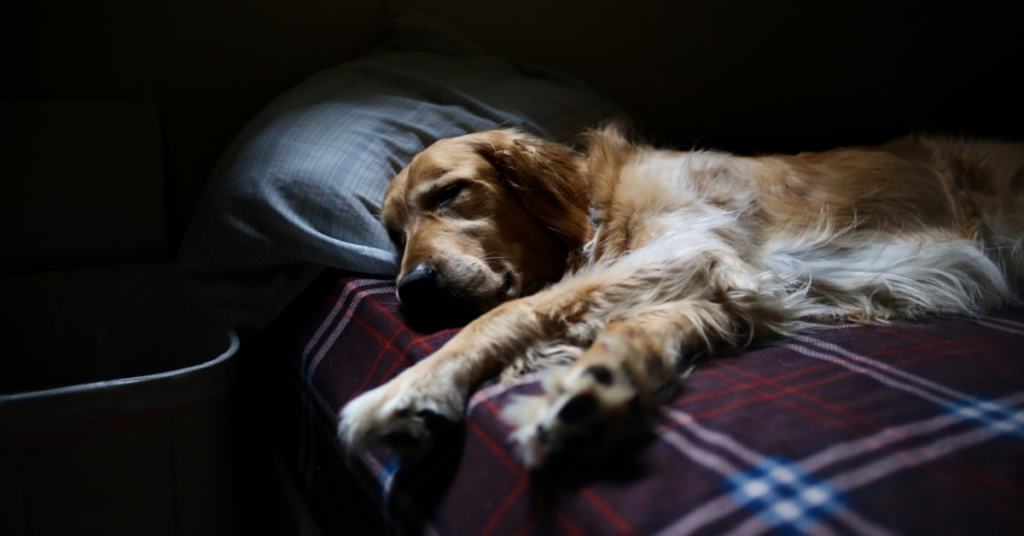
Many pet owners have complained that there is a certain regularity to diarrhea that they have noticed in their dogs. Some owners have noticed their dog having diarrhea every few hours at night.
This condition of a dog having diarrhea every two hours at night means that there is some underlying cause. Therefore, you need to consider the veterinarian for treating your dog and use the above-mentioned methods.
Why Does The Dog Have Diarrhea At Night But Not During the Day?
Sometimes this problem of diarrhea happens in your dog at night after the end of the eating schedule or at that time when there is no other stimulus, and the dog’s digestive system is at rest from the further stimulus.
If you notice that the dog is having this problem of diarrhea only at night, then there is nothing to worry about, but that only means that the dog has something at the end of the day that is causing trouble for your dog.
Conclusion
Now we know all the possible reasons why the dog has diarrhea, mainly at night. We may not be able to manage diarrhea completely in dogs, but a change in your dog’s dietary habits can help reduce diarrhea at night by a great deal.
You can preserve your dog’s health by slowly changing your dog’s diet and maintaining proper hygiene. By closely monitoring the color of your dog’s feces, you can easily tell the reason for the sudden change in your dog and, to an extent, your dog’s health problem.
During diarrhea, your canine friend will surely face discomfort, and you must help your dog. If the condition worsens, consider going to the vet.
Meet Fabian Wright, our guide into the animal realm at PetLoversArena.com. Having served as an Animal Care Specialist for the Ruwenzori Team at the Kansas City Zoo, he prioritizes conserving exotic species by replicating their habitats. Fabian aspires to share captivating stories of creatures, big and small, through PetLoversArena.com.

